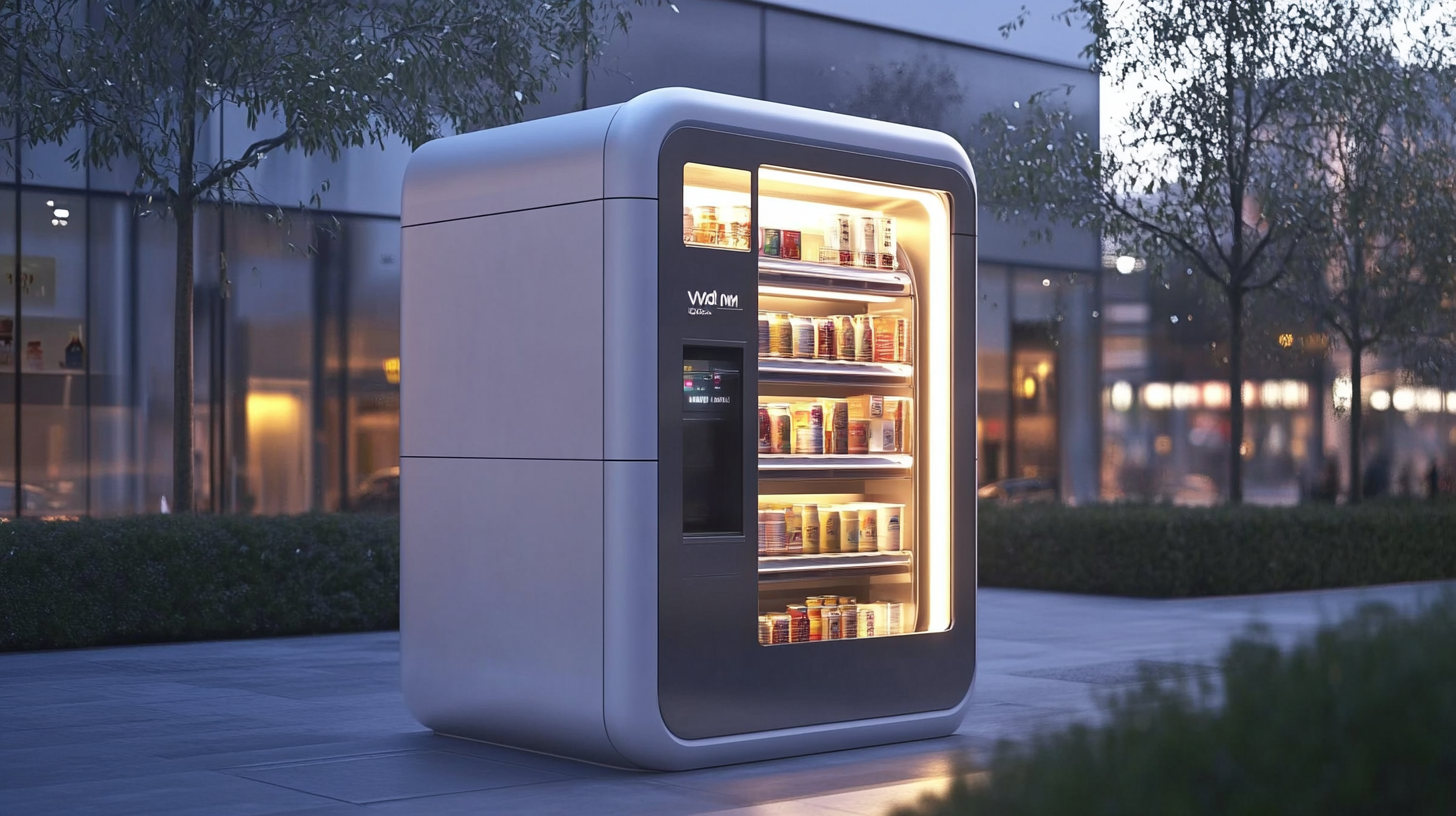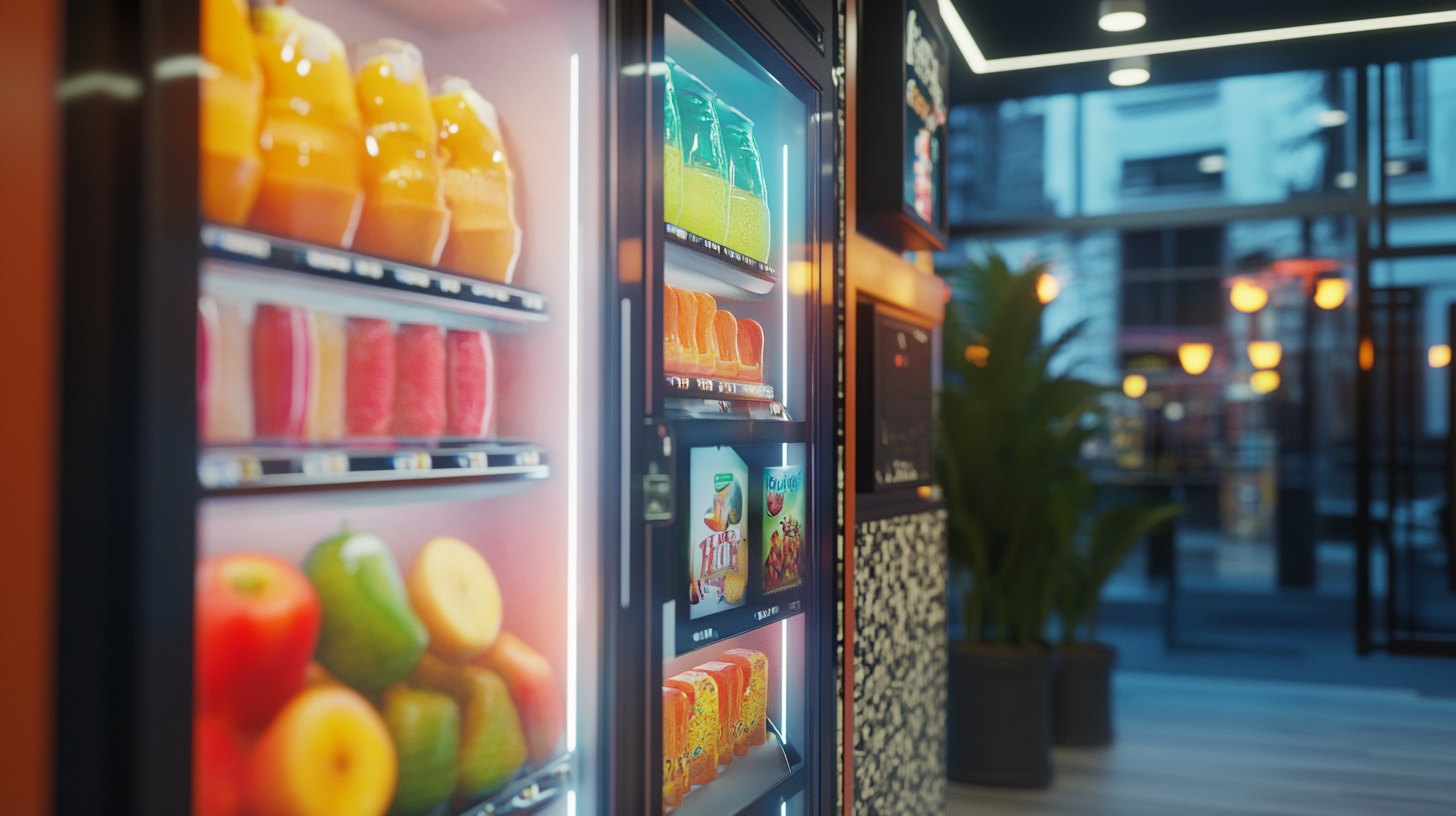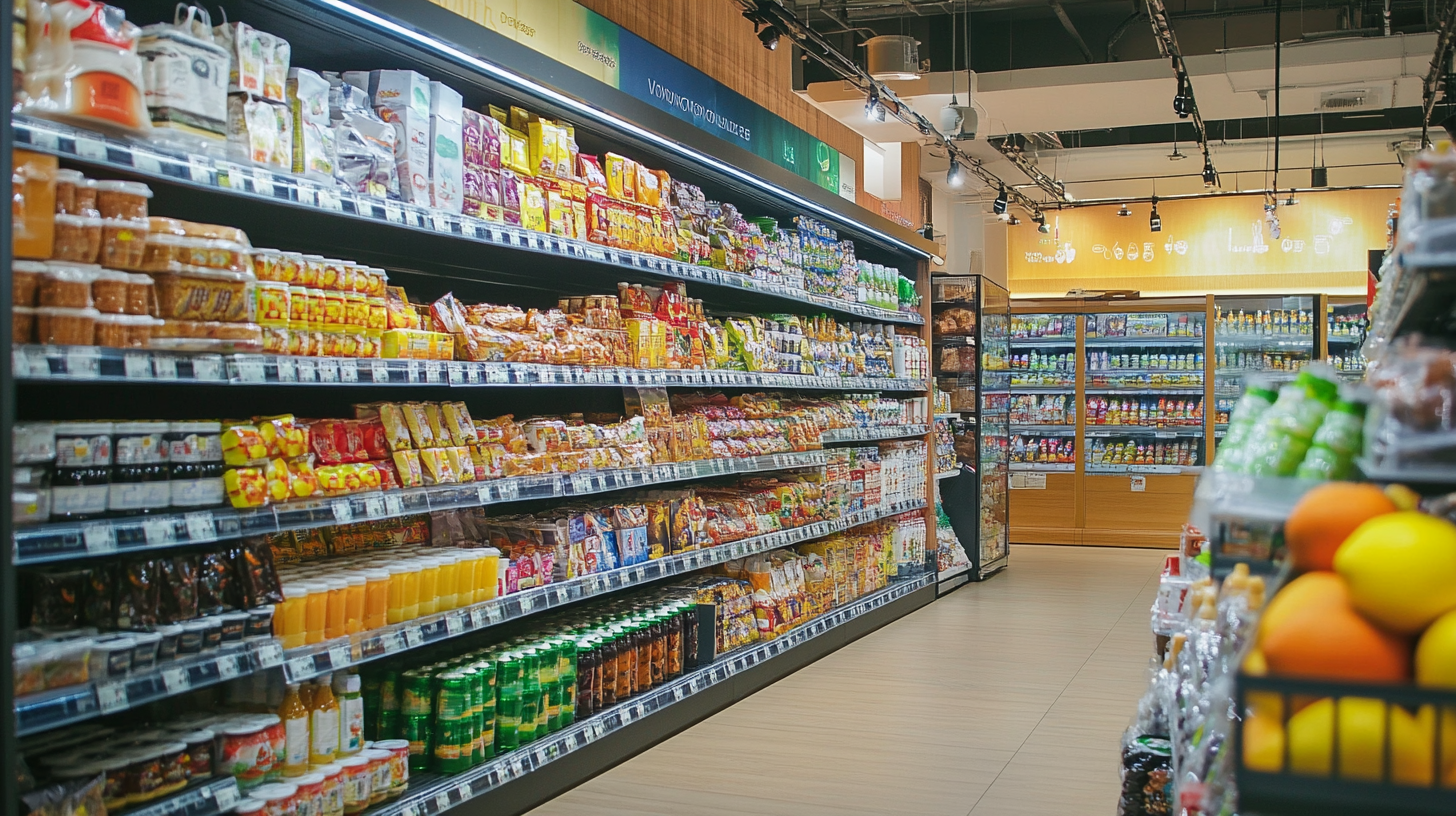What Makes Vending Solutions Essential for Modern Retail Businesses
In today's fast-paced retail environment, businesses are continuously seeking innovative ways to meet customer demands while maximizing convenience and efficiency. One of the standout solutions that have emerged is Vending Solutions. These automated systems offer retailers a unique opportunity to provide a diverse range of products available at the touch of a button, catering to consumers’ desires for immediacy and ease. By integrating vending machines into their operations, retailers can enhance customer experiences and create more flexible shopping environments that adapt to evolving preferences.
As consumer behaviors shift towards more on-the-go lifestyles, the relevance of Vending Solutions in modern retail cannot be overstated. These systems not only streamline operations but also open new revenue streams by placing products in high-traffic areas where they may not be accessible through traditional retail formats. This blog will explore the various aspects that make Vending Solutions essential for contemporary businesses, highlighting their benefits, challenges, and the transformative impact they can have on both retailers and consumers in today's market landscape.

The Evolution of Vending Solutions in Retail Businesses
The retail landscape has undergone significant transformations over the years, and vending solutions have evolved to meet the changing needs of consumers and businesses alike. Initially, vending machines primarily dispensed simple snacks and drinks, largely catering to a niche market. However, advancements in technology and shifts in consumer behavior have led to a more innovative approach to vending solutions. Today, these machines serve a broader purpose, often incorporating features like cashless payment systems, touchscreen interfaces, and even smart inventory management. As retailers aim to enhance customer experience and streamline operations, modern vending solutions have adapted to provide more than just convenience. For instance, many vending machines now offer healthier food options, catering to the growing demand for nutritious snacks. Furthermore, with the rise of automation and artificial intelligence, retailers can analyze data collected from vending machines to optimize product selection and stock levels, ensuring that popular items are always available while minimizing waste. The integration of vending solutions into retail strategies signifies a shift toward more versatile and customer-centric business models. Retailers are leveraging these machines not only as standalone outlets but also as extensions of their brand. By placing vending machines in strategic locations, businesses can reach new customers, enhance brand visibility, and capitalize on impulsive buying behaviors. As vending solutions continue to evolve, they remain essential components of modern retail business strategies, highlighting the importance of adaptability and innovation in a competitive market.

Key Advantages of Integrating Vending Machines into Retail
Integrating vending machines into retail environments offers several key advantages that can significantly enhance both customer experience and operational efficiency. First and foremost, vending solutions provide unmatched convenience. In today’s fast-paced world, consumers value the ability to grab snacks, beverages, or even everyday essentials quickly. Retailers that incorporate vending machines can cater to busy shoppers by offering a 24/7 purchasing option, allowing them to shop outside of traditional store hours and reducing checkout lines during peak hours.
Moreover, vending machines serve as a powerful tool for increasing revenue streams. Retailers can expand their product offerings without the need for additional staff or physical space. This is especially beneficial for businesses operating in high-traffic areas like airports, hotels, or office buildings, where consumers are often looking for quick solutions. With smart vending technology, retailers can also monitor sales data in real-time, helping them to optimize inventory and adapt their product selections based on customer preferences.
Another significant advantage is the opportunity to enhance brand engagement. Modern vending machines can be customized with branding elements and touchscreen interfaces that offer a unique shopping experience. By integrating promotional content and loyalty programs into the vending machines, businesses can foster customer retention while creating a modern shopping atmosphere that attracts tech-savvy consumers. This blend of convenience, revenue potential, and marketing effectiveness positions vending solutions as an essential component of modern retail strategy.

Enhancing Customer Experience through Modern Vending Technologies
In the fast-evolving landscape of retail, modern vending technologies are playing a pivotal role in enhancing customer experience. According to a report by Statista, the global vending machine market is projected to reach approximately $30 billion by 2025. This growth is largely driven by the increasing demand for convenience and immediacy among consumers, leading to innovative solutions that seamlessly integrate into their lifestyles.
Today’s vending solutions are equipped with smart technologies, including cashless payment systems, real-time inventory tracking, and user-friendly interfaces. A study by IBISWorld indicates that over 50% of consumers prefer cashless payment options, highlighting the necessity for vending machines to adapt to these changing preferences. By offering contactless payments and personalized product recommendations through apps, modern vending systems enhance accessibility and cater to the diverse needs of consumers.
Furthermore, the integration of IoT (Internet of Things) in vending machines allows for better customer engagement. For instance, machines can now communicate directly with users via mobile devices, providing promotions and alerts when favorite items are in stock. This level of interaction not only boosts sales but also fosters loyalty by creating a more tailored shopping experience. As the retail sector continues to innovate, embracing modern vending technologies will be essential for businesses aiming to meet customer expectations and stand out in a competitive market.

Cost-Effectiveness: Why Vending Solutions Are a Smart Investment
In today's fast-paced retail environment, cost-effectiveness has emerged as a primary concern for businesses striving to maintain competitive advantage. Vending solutions have gained traction as a smart investment, providing a strategic avenue to optimize operational costs while enhancing customer experience. According to a report by IBISWorld, the vending machine industry is projected to grow at an annual rate of 6.0%, reflecting the increasing consumer demand for convenience and accessibility.
One of the key financial benefits of vending solutions lies in their low overhead costs compared to traditional retail outlets. A vending machine requires significantly less investment in terms of physical space and staffing. For instance, a typical vending machine can generate revenue with minimal human intervention, allowing businesses to reallocate their human resources more efficiently. Industry data suggests that the average profit margin for vending operations can range from 20% to 30%, making it an attractive option for retailers seeking to boost their bottom line.
Moreover, vending solutions allow for diverse product offerings without the risk of unsold inventory. With real-time sales data analytics, businesses can swiftly adjust inventory based on consumer preferences, further reducing wastage and increasing profitability. A study from Fortune Business Insights highlights that automating sales through vending not only drives down costs but also enhances customer engagement. By providing 24/7 access to products and catering to the on-the-go lifestyle of modern consumers, vending machines are proving to be an essential component for retailers aiming to achieve sustained growth in an evolving marketplace.
Future Trends: The Next Generation of Vending Solutions in Retail
As the retail landscape evolves, the integration of next-generation vending solutions is becoming increasingly essential. With consumer demands shifting towards convenience and speed, modern vending systems are embracing advanced technologies that enhance user experience. For instance, the rising trend of contactless solutions is set to redefine the vending machine market, with a projected compound annual growth rate reaching 10% from 2024 to 2032. This shift indicates a clear preference for automated services that prioritize efficiency and safety, particularly in the wake of increased health awareness.
Moreover, the application of artificial intelligence in vending solutions is transforming the industry, elevating operational efficiency and consumer engagement. AI enables machines to gather valuable data on consumer preferences, facilitating personalized product offerings. This technological advancement is not just confined to urban areas; intelligent vending machines are making their presence felt in rural towns and less conventional locations, providing a seamless shopping experience regardless of geography.
The growth of the smart vending machine market reflects the ongoing digital transformation, with projections predicting an increase from $11.47 billion in 2025 to $36.89 billion by 2032, driven by an annual growth rate of 18.2%. Such significant growth underscores the potential for automated vending solutions to not only enhance the retail experience but also to evolve into essential components of modern retail strategies, catering to a tech-savvy consumer base that values immediacy and personalization.
